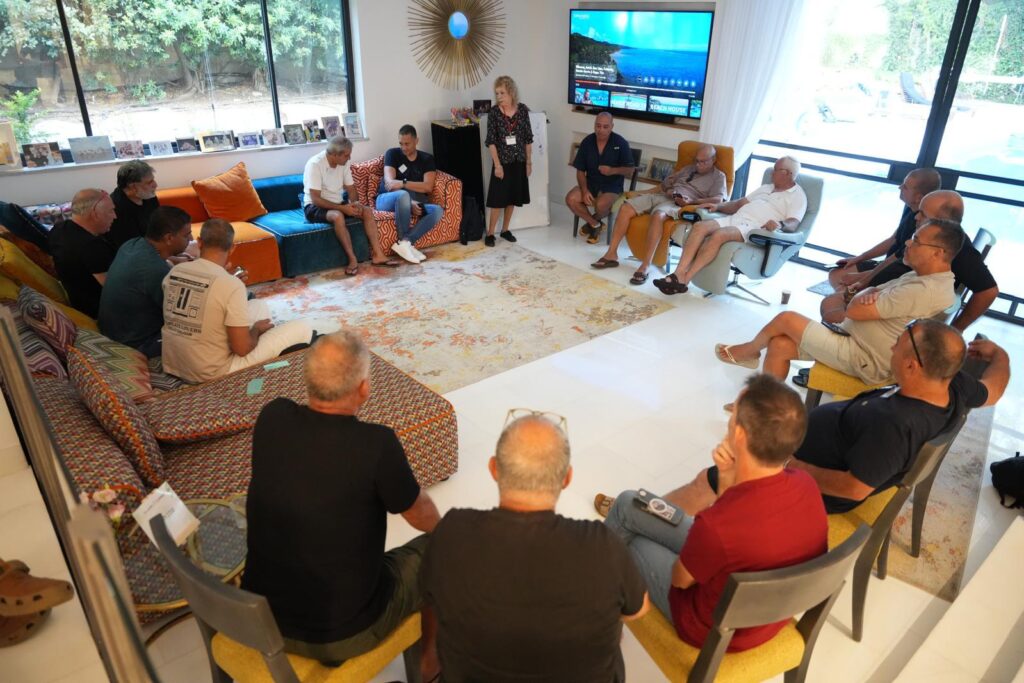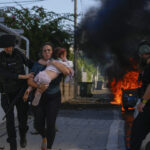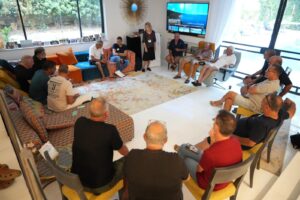
ISRAEL (BP) – Israeli families are relieved Hamas released 20 living hostages but grieve that bodies of remaining hostages are still held or missing, the leader of a top care group serving traumatized families told Baptist Press.
Naomi Nussbaum, executive director of the One Family humanitarian outreach to Israeli survivors of terrorism, said families also fear future attacks from the nearly 2,000 terrorists and prisoners Israel released in the peace deal.
“This is not pure joy,” Nussbaum told Baptist Press. “This is tainted joy.
“Because if 84 percent of released criminals have gone back to commit more rapes, murders, terrorist attacks, we know that it’s not a good thing for them to be walking around in society right now, to release 2 ,000 prisoners,” Nussbaum said. “There’s going to be a price to pay in the future for that. … They were in prison for a reason.”

Hamas only released the remains of four of the 28 deceased hostages that were due to be released with the living hostages, but told mediators they didn’t know the location of some of the remaining 24 bodies. Also, the returned remains must be tested to ensure they are indeed hostage remains, Nussbaum said, describing Hamas as untrustworthy because it has released erroneous remains in former instances.
“Hamas said they were going to give back all of the hostages,” Nussbaum pointed out. “And now, the majority of them are not being released. What’s going on? That is an additional heartache for people who’ve expected closure today, who are not going to have it.”
Feelings and responses among an estimated 6,000 OneFamily clients are varied, Nussbaum said.
“There are many answers,” she said. “Obviously, everybody around the world is cheering today that 20 live hostages came home and we are so relieved that their time in Gaza is over. And then on the other side of this is that to get those 20 live hostages back and whatever bodies we get, about 2,000 criminals were released from Israeli prisons.”
Among OneFamily clients are those who survived brutal Hamas attacks, survivors whose children, spouses or parents were murdered Oct.7, and parents whose children were killed in the war. Israel’s release of the prisoners only adds to the pain of OneFamily’s clients.
“That is incredibly triggering for those families. So, we’re supporting families who are upset, terrified, triggered and jumping for joy and relieved. It’s complicated,” she said. “There are so many sides to it. Even the people who are overjoyed that their loved one is released, now we’re going to hear what happened to them and how they were treated over the past two years.”
Nussbaum referenced the late Hamas leader Yahyah Sinwar, a former Israeli prisoner who planned the Oct. 7 terrorist attack years after his 2011 release in the Gilad Shalit deal.
“This is going to be the beginning of (hostages’) PTSD (post-traumatic stress disorder) treatment,” Nussbaum said. “This isn’t the end. This is the beginning of trying to get them to physically and emotionally recover.”
The turmoil the hostages have endured is unfathomable to many, Nussbaum said, recalling the condition of earlier hostages released after nearly two months in captivity.
“The doctors’ reports said the majority of them had been raped or sexually tortured. We know that they were severely injured when they were being kidnapped. On Oct. 7th, people were burned, people were beaten,” she said. “And then in captivity, they were starved to death, chained, humiliated, degraded. I mean, no air, no light, no hygiene.
“When these people are released, we don’t publicize how they are because they’re never going to have a normal life again,” Nussbaum said. “The public can’t actually handle how poorly these people were treated deliberately.”
Founded more than 24 years ago and with central offices in New Jersey and Jerusalem, OneFamily works with families across Israel who’ve lost loved ones to terrorism, as well as soldiers traumatized by the war, regardless of their religious beliefs. Counseling, retreats, financial and legal aid, homecare and targeted support groups for children, adults, grandparents and others are among the numerous services OneFamily provides free of charge.
“I want everyone to remember that of the 250-plus hostages that were taken on Oct. 7 (2023), 54 nations were represented,” Nussbaum said. “It’s assumed that everybody in Israel is Jewish, but it’s not correct. And OneFamily helps people of all religions who are affected by terror. We help Christian people. We help Arab Israelis. We help Jews and Bedouins, and anybody else who is in the land of Israel. We (have locations) all over Israel.”
In the past two years, OneFamily has sought to increase its bandwidth to help those impacted by the Israel-Hamas war. While the Israeli government and many organizations will help the released hostages, OneFamily will use its limited resources to help the many others in need, Nussbaum said.
“There are less well-known people who desperately need help, who are not getting that help. And that’s what OneFamily really aims to do,” she said. “We want to take care of the people who are not being taken care of.”























